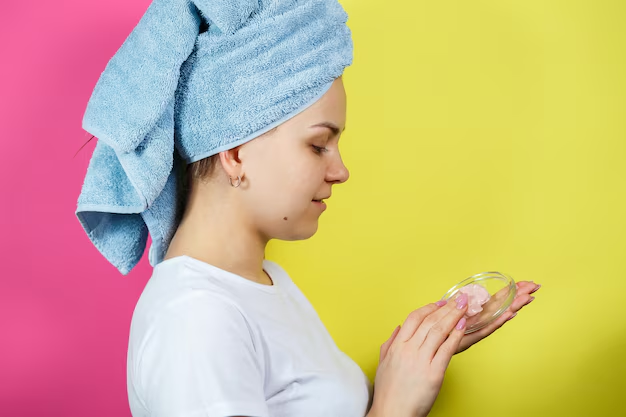How Collagen Might Help Your Skin: Exploring Its Potential Role in Managing Acne
Clear, healthy skin is a goal for many, but acne, a common skin condition, often stands in the way, causing physical and emotional distress. As people seek solutions to reduce acne breakouts and improve skin health, collagen has emerged as a promising option. But does collagen really help with acne? Let's delve into this question from various angles to understand how collagen might impact your skin and explore related insights for optimal skincare.
Understanding Acne: What Are We Up Against?
Before we explore collagen's impact, it's essential to understand what acne is and what causes it. Acne is a multifactorial skin condition influenced by factors like:
- Excessive Oil Production: Overactive sebaceous glands can clog pores.
- Bacteria Growth: Propionibacterium acnes, a type of bacteria, can thrive in oil-laden pores.
- Hormonal Changes: Fluctuations, especially during puberty or menstrual cycles, can trigger acne.
- Dead Skin Cells: Accumulation can block pores and lead to breakouts.
- Inflammation: Redness and swelling are common symptoms accompanying acne.
Acne can manifest as various types of lesions, including blackheads, whiteheads, pimples, and cysts, each requiring distinct management strategies.
What is Collagen? A Quick Overview
Collagen is a vital protein found throughout the body, particularly in the skin, bones, and connective tissue. It provides structure and elasticity, playing a crucial role in wound healing and maintaining skin health.
Types of Collagen
There's more than one type of collagen, each serving different functions:
- Type I Collagen: The most abundant, found in skin, bone, teeth, and tendons.
- Type II Collagen: Predominantly in cartilage, crucial for joint health.
- Type III Collagen: Associated with skin and blood vessels.
- Type IV Collagen: Found in basement membranes, supporting skin layers.
Collagen and Acne: Unpacking the Connection
While collagen is not a direct treatment for acne like some topical medications or antibiotics, it may play a supportive role in the following ways:
1. Skin Resilience and Healing
Collagen is integral to skin's structural support and resilience. By strengthening skin, it might help in:
- Protecting Against Damage: Enhanced skin barrier function may resist environmental stressors.
- Speeding Up Wound Healing: By promoting skin repair, collagen could potentially help heal acne-related blemishes more swiftly.
2. Reducing Inflammation
Inflammation is central to acne's development. Research suggests collagen peptides, due to their anti-inflammatory properties, could reduce skin inflammation. While not a replacement for anti-inflammatory medications, collagen can complement an anti-acne regimen.
3. Enhancing Skin Hydration
Collagen supplementation, particularly hydrolyzed collagen, can improve skin's hydration levels. Well-hydrated skin is less prone to irritation and breakouts.
4. Minimizing Scarring
Collagen's role in tissue regeneration could potentially assist in reducing the appearance of acne scars. It supports tissue repair, which may make scars less noticeable over time.
How to Use Collagen: Different Forms Available
Incorporating collagen into your skincare routine can be done through various methods:
Oral Supplements
Collagen supplements, such as those containing collagen peptides, are popular due to their convenience and purported systemic benefits for skin health.
- Hydrolyzed Collagen: Easier for the body to absorb.
- Collagen Powder or Capsules: Provide an easy way to integrate into diets.
These can be mixed into smoothies, coffee, or simply taken with water.
Topical Applications
Some skincare products contain collagen to help boost the skin's appearance and texture. While collagen molecules are often too large to penetrate deeply, they can provide surface-level hydration and smoothing effects.
Collagen-Boosting Diet
Foods rich in nutrients that support natural collagen production include:
- Vitamin C: Found in citrus fruits and vegetables like peppers.
- Protein Sources: Lean meats, fish, eggs, and beans.
- Antioxidants: Berries, leafy greens, and nuts can help protect collagen molecules.
Potential Risks and Considerations
As with any supplement, it's crucial to approach collagen use mindfully:
- Allergies: Some supplements are derived from seafood or other allergens.
- Dietary Balance: Ensure collagen intake complements a balanced diet; it shouldn't replace whole foods.
Other Natural Approaches to Combat Acne
Beyond collagen, various strategies can address acne:
Balanced Skincare Routine
Simple daily habits can make a significant difference:
- Gentle Cleansing: Use a mild cleanser to remove dirt and oil.
- Non-Comedogenic Products: Choose products that won't clog pores.
- Regular Exfoliation: Helps prevent dead skin buildup.
Lifestyle Adjustments
Small changes can have a big impact on skin health:
- Stress Management: Elevated stress can exacerbate acne. Consider activities like yoga or meditation.
- Adequate Sleep: Rest supports overall health and skin recovery processes.
- Dietary Adjustments: Reducing sugar and processed food intake might help manage breakouts.
Professional Treatments
For persistent acne, consulting a dermatologist can be beneficial. They might recommend:
- Topical Retinoids: Help unclog pores and reduce inflammation.
- Antibiotics: Sometimes prescribed to target bacterial growth.
- Chemical Peels or Laser Therapy: Target deeper skin layers and improve texture.
Final Insights: Does Collagen Help With Acne?
While collagen is not a cure for acne, it may offer supportive benefits in an overall skincare plan. By enhancing skin strength, improving hydration, and potentially reducing inflammation, collagen could contribute to clearer skin when used alongside other treatments. Remember, skincare is highly individual, so what works for one person may not work for another.
For those battling acne, it’s empowering to have options. Whether you choose to incorporate collagen through supplements, a collagen-boosting diet, or topical products, integrating it mindfully into a balanced skincare approach can be key to maximizing benefits.
🤔 Quick Summary for Skin Health Enthusiasts:
- Hydration & Resilience: Collagen boosts skin structure and moisture, potentially reducing acne breakouts.
- Healing & Scarring: May support faster healing and reduce the visibility of acne scars.
- Supplementation Methods: Available through oral supplements, topical applications, and dietary sources.
- Holistic Approach: Combine collagen with a balanced skincare routine, healthy lifestyle habits, and professional advice for best results.
By considering all these angles, you can make informed choices about incorporating collagen to support your journey towards healthier, clearer skin. 🌟

